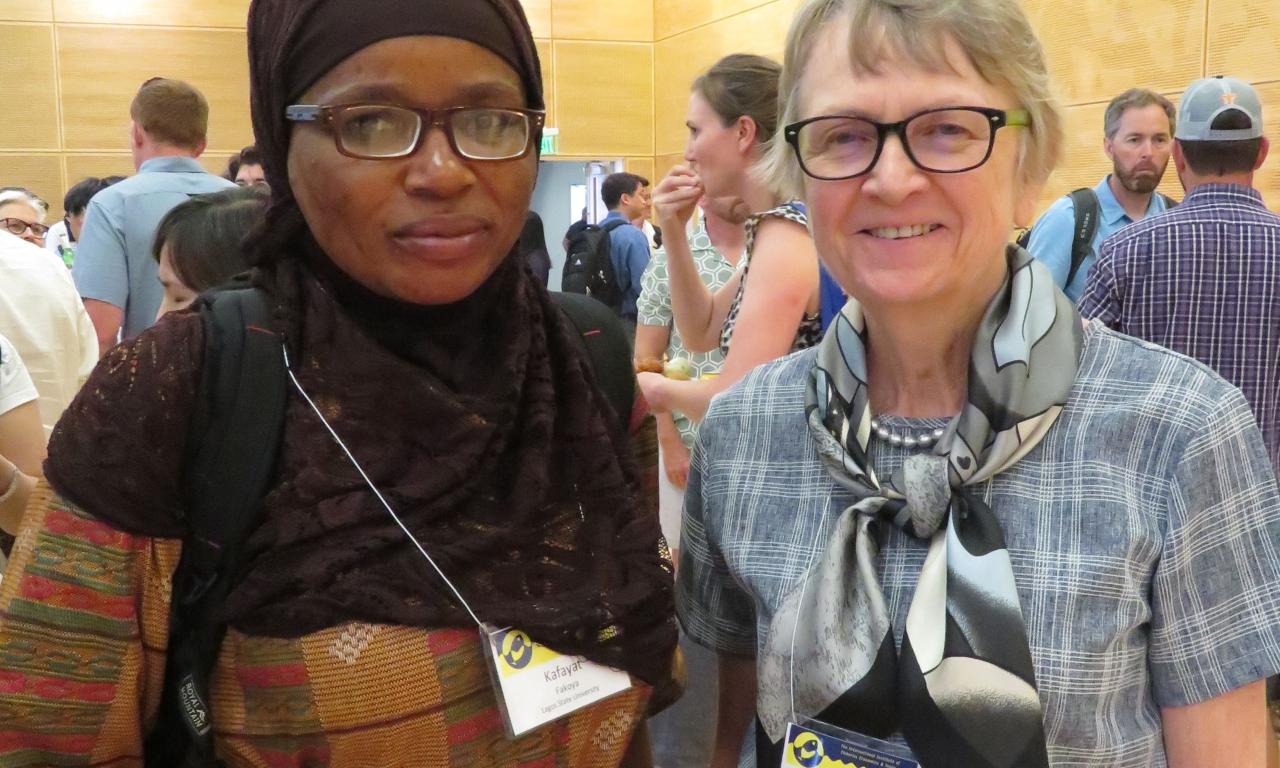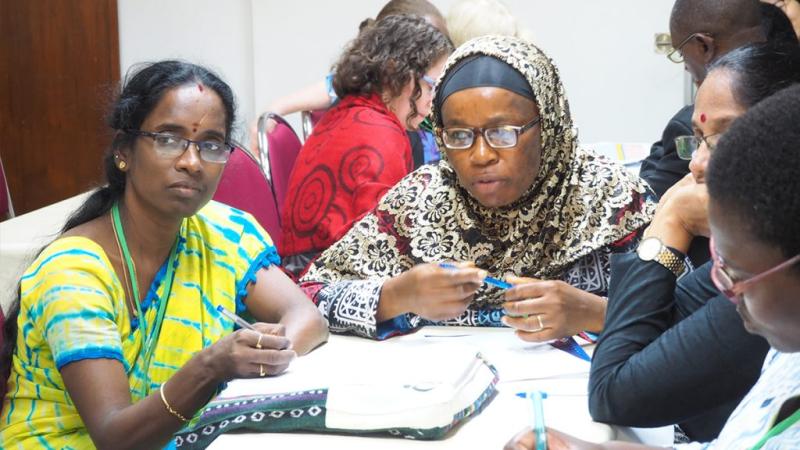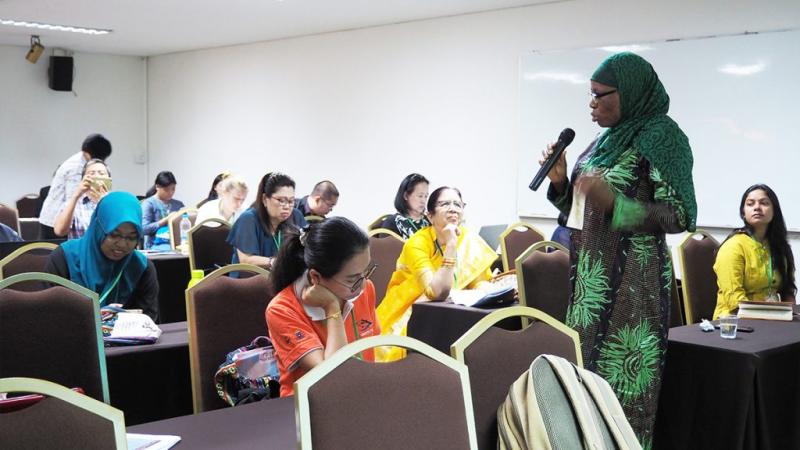
Illuminating Hidden Harvests (IHH): The contribution of small-scale fisheries to sustainable development is a collaborative study led by the UN Food and Agriculture Organization, Duke University and WorldFish. In this series, we profile some of the more than 300 experts from over 50 countries who contributed to the 58 country case studies and thematic studies included in the IHH research due out in 2021.

Dr. Kafayat Adetoun Fakoya is a senior lecturer at Lagos State University in Nigeria. She was the gender advisor and a contributing author for the IHH Nigeria case study. Dr. Fakoya, who has worked in small-scale fisheries for about 10 years, has a particular interest in gender, governance, livelihoods and well-being. Currently, she is the principal investigator on several research projects looking at the adoption of solar fish dryers and enhancing the viability of SSF communities. Here, she talks about her role in the IHH Nigeria case study and the impacts she hopes the research will have.
Tell us about the role and contributions of small-scale fisheries in Nigeria that the IHH case study will help to highlight?
It will help to demonstrate the huge but hidden economic value of the small-scale fisheries catch and entire value chain in Nigeria.
Why do you believe the IHH study is important?
It is important because it seeks to harness all available information on SSF to present a snapshot of the sector at all levels, ranging from local, national, regional, continental and global.
What is new in the approach that IHH is taking to understand small-scale fisheries in Nigeria?
The novelty is that all aspects of the sector were investigated using mixed methods, including in-depth interviews and consultations with experts and field studies. We also used diverse sources for our data, including researchers' experiences, fisher interviews, literature reviews, government/official documents, field and more. These methods and sources elicited information and synthesized knowledge on the present status, which was extrapolated to ensure all existing areas were covered.
What were the biggest challenges for the IHH Nigeria team in completing the IHH country case study?
The limited availability of data or literature reviews on SSF catch, effort, economics, social and governance dimensions. Even when data was present it was limited in scope and timescale. Data on many gender components were also lacking.
How will you and your organization use the IHH Nigeria case study?
Personally, I hope to build on the IHH Nigeria case study by conducting additional research on the information/data gaps and work within my organization to establish a small-scale fisheries research hub and network for research collaborations, information exchange, and capacity building. The hub and network will help bring together expertise on SSF, synergize research on SSF in the country, and support evidence-based policies to promote SSF by decision-makers.
Do you think that the IHH findings will create any positive or negative impacts on small-scale fisheries, food security or the environment in Nigeria? In what way?
I believe the IHH findings will lead to a positive impact as I expect there will be greater attention or focus on SSF by policy-makers and the government.
What can be done now to ensure the IHH Nigeria case study and your work here has the most significant effect? What role do strategic communications have?
Key action points should be created from the IHH study for specific audiences ranging from decision-makers, academic/research community, small-scale value chain actors, students, and the public. The most important effect would be to use the findings to inform the development of evidence-based policies, projects, and action plans for SSF.
Strategic communications facilitate the development of key messages based on the IHH findings for different or specific stakeholders. The ideas developed would be devoid of complex scientific/research terminologies and bridge the science and policy divide without losing focus on the objectives and goals of the IHH study.
What impact with the IHH study on understanding women’s role in SSF?
I believe that a major contribution of the report will be its gender findings, which will help to highlight the often-sparse information available on women's roles and contributions to SSF. With time, I believe the IHH study will influence SSF research priorities to support evidence-based policies, action plans, and programs at global, regional, national, and local levels.

How can the IHH research help to achieve the SDGs, particularly around eradicating poverty and ending hunger in developing countries?
The methodology developed by the IHH study presents a holistic and integrated approach that other researchers can replicate to analyze data and information about the characterization, drivers and environment, economics, social and governance contributions of SSF. In addition, the IHH analysis and findings can be used to proffer solutions for deficits in fish supply and the absence of developed gendered value chains in SSF within developing countries to end poverty and hunger.
What have you learned while undertaking this study?
A lot! I have a better grasp of the information and data needs of the SSF sector in my country. The economic and social valuations of SSF are enormous compared to large-scale fisheries but are, sadly, overlooked and unrecognized.
Other members of the IHH Nigeria country case study team were:
- Professor Shehu Latunji Akintola, Lagos State University, Nigeria—Lead IHH Nigeria researcher
- Dr. Kafayat Adetoun Fakoya, Lagos State University, Nigeria—Gender advisor for IHH Nigeria case study
- Professor Francis Maduwuba Nwosu, University of Calabar, Nigeria—IHH Nigeria team member
- Dr. Ayokunle Oluwatoyin Enikuomehin, Lagos State University, Nigeria—IHH Nigeria team member